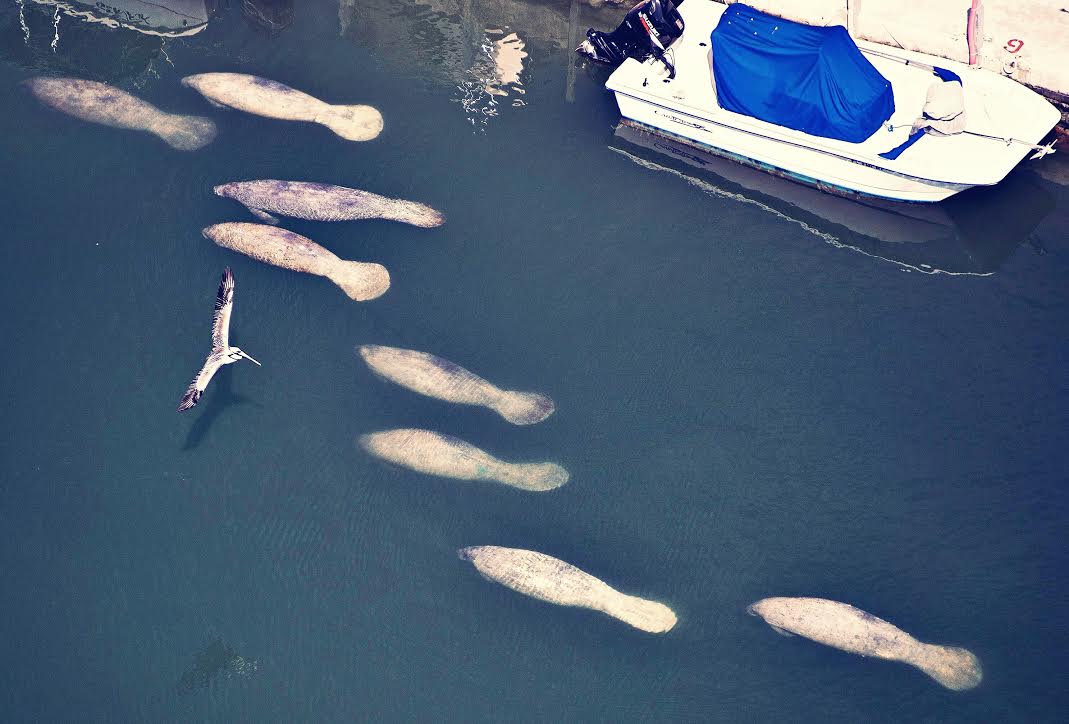
By using a diesel marine engine in your vessel, you’re already doing helping the environment by choosing the option that produces fewer harmful emissions into the air. However, a boater must also be mindful of his surroundings and the wildlife therein. In Florida, protecting the now-endangered manatee has become a challenge as more and more people begin to enjoy recreational boating. If we do not stay vigilant while on the coastal waters of Florida, the manatee may become extinct from the effects of human encroachment. At Diesel Services of America, we feel that it is important to keep yourself and the environment safe when enjoying your marine diesel craft. That is why we’re happy to use our years of boating experience to offer some manatee protection & safety tips to our Florida natives.
When boating in Florida waters, it’s important to get a boater’s guide for the counties that you plan to explore so you can become familiar with the location of any manatee speed zones in the area. It is also critical to pay attention to these signs and adjust your speed accordingly – manatees are not particularly speedy creatures and may not have time to get out of your way if you’re traveling too fast. Certain areas are even zoned as designated manatee sanctuaries and cannot be entered, so be mindful of all posted signs. The most obvious way to avoid colliding or otherwise harming a manatee while boating is to avoid them at all costs.If you see a snout, flipper, or back breaking the water’s surface, it’s best to avoid it. A flat spot or swirl on the water’s surface is also an indication that a manatee has recently dove beneath the surface, but you can cut down on the sun’s glare and see beneath the surface by wearing polarized sunglasses while boating, something we also highly recommend for the safety yourself and all those around you.
Another helpful tip for avoiding manatees when boating in Florida waters is to stay in deeper channels and avoid boating over grasswater beds and other shallow areas. While manatees are capable of swimming deep waters, you’re far more likely to encounter them in the shallows where they feed. Again, these areas will typically have a posted sign, but always pay attention to your depth anyway. Another threat to manatees and the rest of the marine ecosystem is littering. Plastics and other human debris in our waterways can be extremely dangerous to manatees and other forms of wildlife, so recycling or otherwise properly disposing of your waste will help keep our marine ecosystem thriving. The same can be said for monofilament fishing line – not only is discarding this material into the waters dangerous for wildlife and humans alike, but it is also against the law in Florida.
If you do manage to spot a manatee, it is recommended that you stay a minimum safe distance of 50 feet away. If you do wish to observe the manatee, cut your motor to avoid potentially frightening or harming the creature. Also, it is important that you resist the urge to touch or feed the manatees if you do decide to stop. This could disrupt their natural feeding patterns, encouraging them to hang around humans in areas where they are not safe – then once the humans finally leave, the manatees may become confused and not know where to go for nourishment from natural and reliable food sources. By looking and not interfering, you’ll get a rare opportunity to observe a majestic and endangered species in its natural habitat without putting the wildlife at risk of danger and keep yourself from risk of legal consequences. However, if you do observe an injured or dead manatee, you can report it to the Florida Fish & Wildlife Conservation Commission by calling 1-888-404-3922, or by using VHF Channel 16 on your marine radio.
![]()